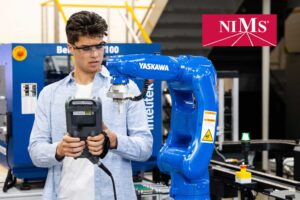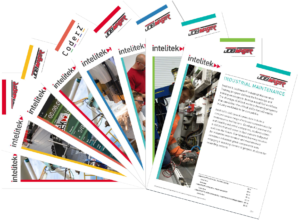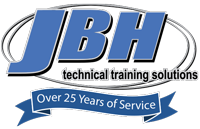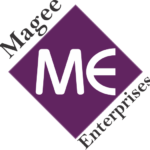The SKILLS USA National Championships were held June 24th and 25th in Louisville KY, with 6,000 of the country’s top career and technical education students competing in over 100 different trade, technical and leadership fields. To earn a spot at the prestigious national event, all participating students had previously won a state contest.
Within the competition, Intelitek set the industry based competencies and standards for three of the contests, including Robotics and Automation Technology, Automated Manufacturing Technology, and Mobile Robotics Technology; all of which have seen an increase in participation levels by 10% from the previous year.
The Mobile Robotics competition contains teams of two students who build a robot based on design, assembly and build instructions they create and store in an engineering notebook. The students are judged on the quality of the engineering notebook, an oral presentation in front of industry based judges and robotic performance on a competitive field
Intelitek’s Product Manager, Trevor Popesat down with Mobile Robotics gold medal winners and Intelitek users Morgan Chen and Samarat Darren Srivathanakul, two seniors at Texas’ Richardson High School.
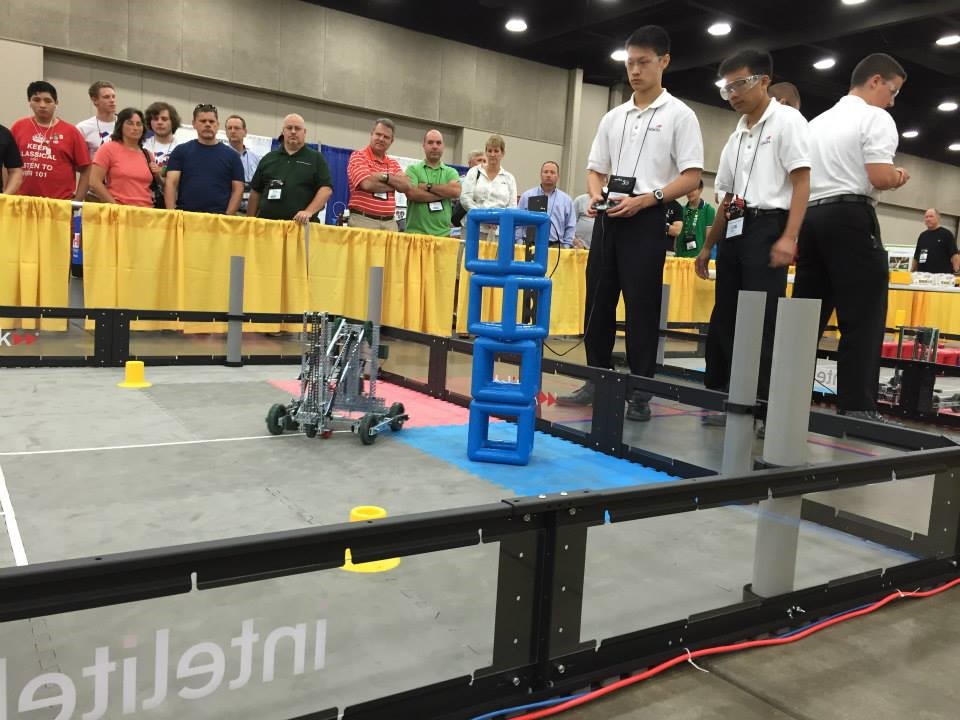
Intelitek – We would like to understand your journey. What were your goals and what obstacles did you overcome throughout the season?
Morgan – Like every competing team, our goal was to create a robot that would score the most points and ultimately earn the gold medal. To achieve that goal, my teammate and I focused especially on an efficient robot design and a strong autonomous program. We understood that a simple but strong robot design was all that we really needed, yet a strong autonomous program would be necessary to gain an edge in the competition, especially at the national level. In the end, patience and perseverance were key to overcoming these and all obstacles that we faced.
Darren – Our goals this season was to come back from last year’s loss and improve our designs and skills to get a better placement in the competition, or even win. Many design mechanics were made as prototypes to our drive, lift, and intake systems, but many failed to perform as smoothly and efficiently as we wanted them to.
Intelitek – What made you a successful team?
Morgan – I believe that one important factor to our team’s success was our experience gained from last year’s competition. For example, my teammate and I realized that while we were given a day to build our robot, it was vital that we set apart some time to test out and practice the operation of the robot as well. Furthermore, we realized the importance of the autonomous program in the competition and the importance of practice with the manual driver operation. Another key factor that I believe contributed to our success was our dedication and motivation. My partner and I spent countless work hours throughout the school year, and oftentimes stayed after school and worked at home when necessary to perfect our robot and work on the notebook and oral presentation as best as we could.
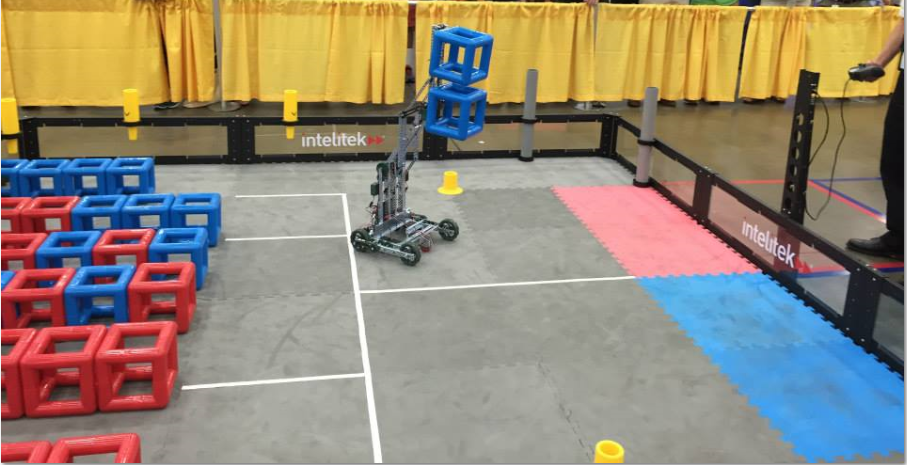
Darren – We worked throughout the year, thinking of and producing new designs to improve the performance of our robot.
Intelitek – How did you become interested in robotics?
Morgan – I played a lot with Legos as a child, sparking my interest in building and creating; principles closely aligned with robotics and engineering. In my last year of elementary school (6th grade), I joined a robotics magnet program that my school provided where we worked with the Lego Mindstorms NXT kits. I continued with the robotics magnet program through my middle school years, where I worked closely with AutoCAD software and machining skills. I followed the magnet program to high school, as my past experiences with the robotics program only further kindled my interest in robotics and engineering.
Darren – Since I was a little kid I always loved toy cars and Lego products. I built a love for mechanics and engineering through the robotics program in my elementary school, the Math Science and Technology Magnet, where we used LEGO Mindstorms to experiment with building and programming robots for competition. This heightened my interest in robotics greatly and I continued to enjoy exploring robotics with VEX in the robotics magnet program in Richardson West Junior High and Richardson High School.
Intelitek – What are your future plans and did they result from your experience in robotics?
Morgan – Ultimately, I aspire to pursue a successful career in engineering, ideally one geared towards but in no way utterly bound to the branches of mechanical, electrical, and/or computer science engineering. I’m interested in robotic engineering and its application to defense technology, and am an admirer of the work of companies such as Lockheed Martin, Northrop Grumman, Raytheon, etc. My future aspirations are heavily influenced by my experiences in robotics as the underlying principles inherent in robotics, such as design and construction, have always interested me.
Darren – After finishing my high school robotics program, I plan to study some form of engineering whether it be electrical or somewhere else in the field. I would really like to work in engineering in the future.
Intelitek – Do you use Intelitek’s EasyC software and / or our Robotics Engineering Curriculum or other curriculum? Was it helpful?
Morgan – My teammate and I opted to use Intelitek’s EasyC programming software for our competition autonomous program. EasyC software was helpful in the creation of our robot’s autonomous program as it was straightforward and clear-cut.
Darren – We used easyC v4 for the past couple years. It is easy to use, great for beginners and easy to program simple and complex tasks for sensors and motors.



